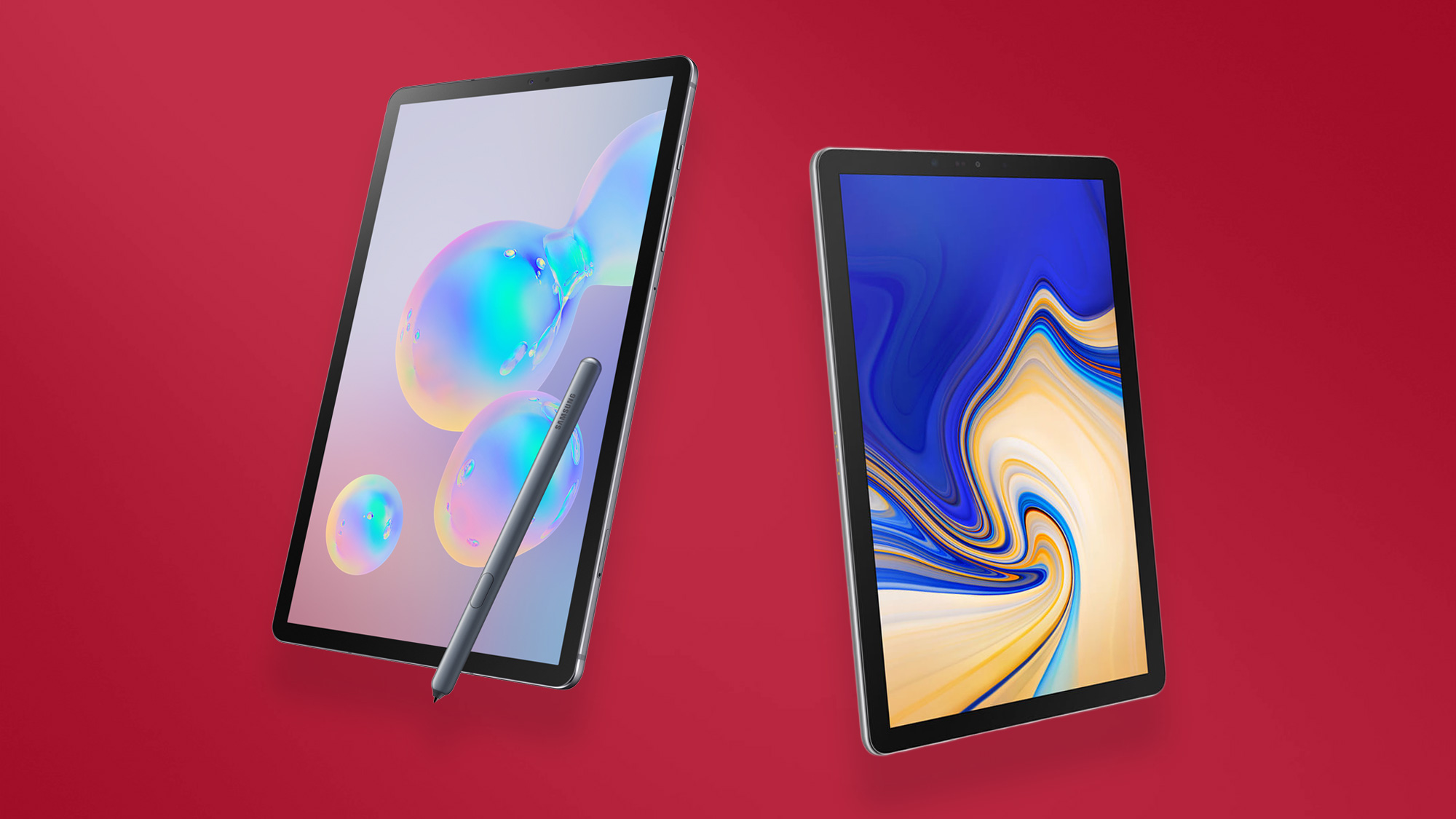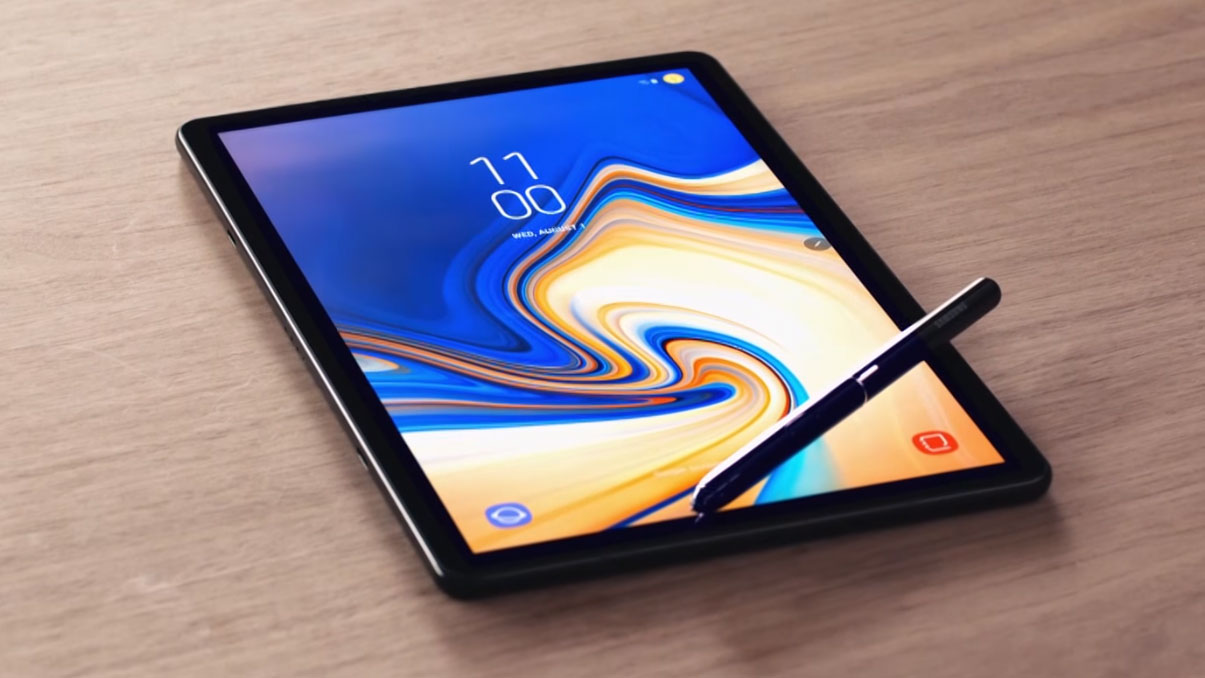Samsung Galaxy Tab S6 vs. Samsung Galaxy Tab S4
One year later - is the refined tablet worth it?

The Samsung Galaxy Tab S6 is pitched to be a professional’s tablet - powerful, versatile, and with a few new features that make it an attractive alternative to the comparably-sized 11-inch iPad Pro. But is it truly better than its predecessor, the Samsung Galaxy Tab S4, that came out the year before?
You’d be forgiven for wondering why there isn’t a Tab S5 - for some reason, Samsung bypassed that numeration - but it’s just as well since the Tab S6 didn’t change that drastically from the previous year’s model. It has, however, been refined in some key quality-of-life ways that make it more attractive than the Galaxy Tab S4, especially if you like using the S Pen stylus.
So, the question: should you pick up the new tablet, or buy the old one at a discount?
Below, we’ll delve into each aspect of both tablets before offering a final verdict at the end.

Samsung Galaxy Tab S6 vs. Samsung Galaxy Tab S4 price and release date
The Samsung Galaxy Tab S6 Wi-Fi-only model will go on sale in the US on September 6 starting at $649 for the base model (6GB RAM/128GB of storage - it’s unclear how much pricier the 8GB RAM/256GB of storage model will be).
As for the LTE model, Samsung has only said it’s coming later in 2019. Other regions haven’t gotten their own prices or firm release dates for either version yet, though the Wi-Fi-only model will be available in the UK in late August.
The Samsung Galaxy Tab S4 was released in August 2018, and you can typically find it discounted from its $649 (£599, AU$959) launch price. In essence, that’s what this versus guide boils down to: is the Tab S6 worth the money to buy it at full price, or should you go for the older-but-still-solid model?
Get daily insight, inspiration and deals in your inbox
Sign up for breaking news, reviews, opinion, top tech deals, and more.

Samsung Galaxy Tab S6 vs. Samsung Galaxy Tab S4 design
While there are some minor differences, the biggest changes come with devices that aren’t the tablet - the S Pen has gotten some tweaks, while the revamped Book Cover Keyboard is far superior with its added touchpad.
The Tab S6’s design is a bit different, however: it’s thinner, for one, at 5.7mm (just shy of the iPad Pro’s thickness) compared to the 7.1mm of the Tab S4. Granted, that’s still slimmer than Samsung’s smartphones (the Samsung Galaxy S10 is 7.8mm), but the newer version of the tablet is lighter, too, at 420g vs. the Tab S4’s 480g - but honestly, having to tote around an extra tenth of a pound of weight isn’t too onerous.
In terms of the accessories, the new tablet's S Pen clips on to the back and recharges and both official cases curve over the stylus to ensure it doesn’t go anywhere. That’s more convenient than the Tab S4’s solution - a holster in the Book Cover Keyboard - but if you’re picking up this tablet, you’re probably going to purchase that optional keyboard case, too.
The S Pen itself has been improved too - instead of a cylinder, it’s an ovoid (to prevent rolling). It can also do Air Gestures: hold the button on the stylus and make quick movements to control the volume, switch photo modes, and more. Is it useful? Possibly, but it might just be easier to tap tried-and-true directions yourself.
The new Book Cover Keyboard is another serious upgrade. It’s in two parts, so you can toss aside the keypad if you don’t have the room (like on airplane tray tables), and there are new shortcuts to easily switch modes - like turning on and off tablet-to-desktop DeX. If the new Book Cover Keyboard isn’t compatible with the Tab S4, that’s a big feather in the Tab S6’s cap.

Samsung Galaxy Tab S6 vs. Samsung Galaxy Tab S4 display
This might be the easiest comparison to make in the whole guide, as the Tab S6 seems to have inherited the Tab S4’s 10.5-inch Super AMOLED display without any obvious alterations. The resolution is still WQXGA (2,560 x 1,600 pixels).
...Okay, there’s one change: the Tab S6 has an in-display fingerprint sensor. If you hated only having facial recognition for your authentication, this might be another good reason to opt for the new tablet.
A final note - the screen is still 10.5 inches, but the newer tablet is shorter and less wide by 5mm each. Don’t fret, the bezels are just narrower, shaving around 2.5mm on each of the four sides.

Samsung Galaxy Tab S6 vs. Samsung Galaxy Tab S4 camera
Another entry in the minor-change category: The Tab S6 seems to have the Tab S4’s same 8MP front-facing camera and 13MP wide-angle rear shooter, but the new tablet also added a 5MP ultrawide lens to augment its photography.
Phones have been adding ultrawide lenses to their camera suites for the last year, and the results speak for themselves: more context and peripheral vision. If you liked how much the Galaxy S10 phones captured with their 123-degree ultrawide shooter, you’ll like the Tab S6 as its lens captures the same field-of-view.
Of course, if you don’t particularly care about using your tablet for photography (and we can’t blame you), you can probably skip this category.

Samsung Galaxy Tab S6 vs. Samsung Galaxy Tab S4 performance and battery
When the Galaxy Tab S4 came out in August 2018, we were worried that its already-old Snapdragon 835 processor would hinder its performance - and were pleasantly surprised that it didn’t. The tablet runs just fine on a baseline 4GB of RAM, though its basic 64GB of storage is a little slim (don’t fret, it’s expandable with a microSD card).
But if you wanted serious power, the Tab S6 packs the latest Snapdragon 855 chipset found in this year’s phones - an 86% increase in performance, per Samsung representatives. Add in a bump up to 6GB RAM and 128GB of space for the baseline (optionally upgradeable to 8GB RAM and 256GB of storage), and you’ve got a beefier machine that will likely age a bit better over the years.
It will probably handle multitasking better, too - not just switching between apps, but with Samsung’s always-promising, almost-handy DeX mode. What we saw of the Tab S6 was a tablet that could stream video while powering casual browsing on another monitor, though it wasn’t the performance that tripped us up with the Tab S4 - it was the constantly-crashing third-party apps. We’ll have to await further testing to see if the S6 avoids a similar fate.
Battery-wise, the Tab S4’s is actually larger at 7,300mAh - not surprising, given the slightly-thinner casing in the Tab S6, which likely whittled down the battery to 7,040mAh. How much this limits the new tablet’s runtime is unclear without further testing, but they’re roughly comparable, and both have fast-charging.

Final verdict
With more power and a slightly slimmer package, the Tab S6 is clearly the superior machine - especially if the new Book Cover Keyboard can’t be used with older tablets. But it comes at a hefty cost which might be beyond consumers looking for a casual device.
At this point, the Tab S4 has been out long enough to enjoy decent discounts, especially during deals seasons, and it’s hard to justify the full price of the new tablet. Its older processor might mean a shorter lifespan - eventually outpaced by an OS update down the line - but that’s conceivably years away.
Your choice boils down to needing the top of the line and/or not sweating the extra cost to pay full price for a work machine, or saving a bit of cash by opting for a model with a serviceable but not terribly exciting suite of accessories and features. There is no must-have feature in the Tab S6, but it is nice to have the latest and greatest specs if you want to do some serious multitasking or gaming.
David is now a mobile reporter at Cnet. Formerly Mobile Editor, US for TechRadar, he covered phones, tablets, and wearables. He still thinks the iPhone 4 is the best-looking smartphone ever made. He's most interested in technology, gaming and culture – and where they overlap and change our lives. His current beat explores how our on-the-go existence is affected by new gadgets, carrier coverage expansions, and corporate strategy shifts.
